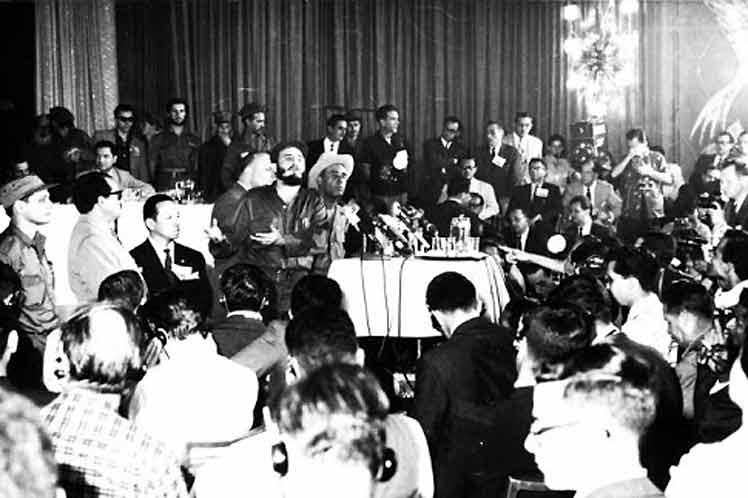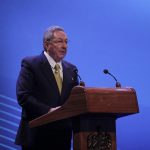Havana, Cuba: Today, 62 years later, the steps of the 380 journalists that the leader of the Revolution, Fidel Castro, invited to learn about the reality of Cuba, in the so-called Operation Truth, still seem to resonate in the Habana Riviera hotel.
January 21 and 22, 1959, were the dates set by the highest leadership of the nascent process to confront a campaign of slander regarding the trials of torturers and murderers linked to the dictatorship of Fulgencio Batista (1952-59); and they would go down in history as the first battle against misinformation.
Days earlier, a group of US congressmen declared themselves against the prosecution of these war criminals and asked the State Department to intervene in the matter.
This context was completed by the media exercise seasoned with the falsification of facts, and the requests for measures against the Island.
In response, Fidel Castro summoned the nearly 400 foreign journalists and some US congressmen to attend Operation Truth, to witness the trials and learn about the reality of the country.
Thus, on the 21st, a million Cubans, gathered in front of the then Presidential Palace (now the Museum of the Revolution), in Havana, ratified the popular will to continue with the process that had triumphed on the 1st of that month, after the war of national liberation against the Batista regime.
Meanwhile, during the following day, information was offered to the guests in the aforementioned hotel in the capital, and Fidel Castro, with solid arguments, responded to those present, according to an article by Cuban journalist Juan Marrero.
In such events, described as the largest press conference in the world, the Cuban leader denounced the information monopoly of US agencies and raised the need for Latin America to have its own voice.
“The Latin American press should be in possession of means that allow it to know the truth and not be victims of lies”, he emphasized.
As a result, five months later, on June 16, with the collaboration of prominent Cuban and Latin American professionals, the Latin American Information Agency Prensa Latina (www.prensa-latina.cu) was born, the first alternative media in the region.

Redacción Digital
Equipo de redactores del sitio web de Radio Mayabeque



